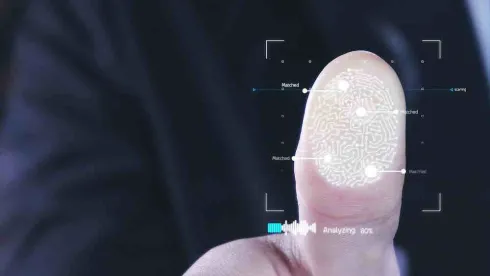A jury in federal court in Chicago has returned a verdict for the plaintiff class in the first trial of a case involving claims under the Illinois Biometric Information Privacy Act (BIPA). Rogers v. BNSF Railway Co., No. 1:19-cv-03083 (N.D. Ill. Oct. 12, 2022).
The plaintiff, on behalf of himself and a class of other truck drivers, claimed he was fingerprinted when he entered BNSF’s railyards to make pickups and deliveries and that BNSF violated Section 15(b) of the BIPA by collecting his biometric data without first giving him written notice and obtaining his informed consent.
After deliberating for approximately an hour, the jury returned a verdict in favor of the plaintiff and the class. It found that BNSF recklessly or intentionally violated the BIPA 45,600 times, or one time for each member of the class. The verdict form presented to the jury did not ask the jury to calculate damages, asking only for the total number of negligent, reckless, or intentional violations. Shortly after the jury returned its verdict, Judge Matthew Kennelly entered judgment in favor of the plaintiff class and against BNSF in the amount of $228 million, which equals $5,000 per class member.
Earlier in the case, the court granted the plaintiff’s motion for class certification and certified a class of “[a]ll individuals whose fingerprint information was registered using an Auto-Gate System at one of BNSF’s four Illinois facilities” during a period dating back five years from the filing of the plaintiff’s complaint. On September 7, 2022, shortly before the trial began, the court denied BNSF’s request to stay the case pending a decision by the Illinois Supreme Court in Cothron v. White Castle System, Inc., in which the Court will decide when claims under Sections 15(b) and (d) of the BIPA accrue. Separately, the Illinois Supreme Court in Tims v. Black Horse Carriers, is considering whether claims under the BIPA are subject to a one-year or five-year statute of limitations. The Tims case was argued before the Illinois Supreme Court on September 22, 2022.
At trial, BNSF presented evidence that it contracted with a third-party to operate and maintain the exit gates at BNSF’s facilities. BNSF argued that the third-party, not BNSF, collected the biometric data of the plaintiff class. However, the plaintiff argued that BNSF was responsible for the actions of the third-party because the third-party was acting as an agent of BNSF. The jury was given instructions regarding this issue.
BIPA has been the law in Illinois since 2008. Section 20 of the BIPA allows individuals aggrieved by a violation of the statute to bring a private right of action. BIPA further provides that a prevailing party may recover for each negligent violation of the BIPA liquidated damages of up to $1,000 or actual damages, whichever is greater. The statute also provides that, for each reckless or intentional violation, a prevailing party may recover liquidated damages of up to $5,000 or actual damages, whichever is greater.
BNSF has publicly stated it intends to appeal the verdict.






 />i
/>i